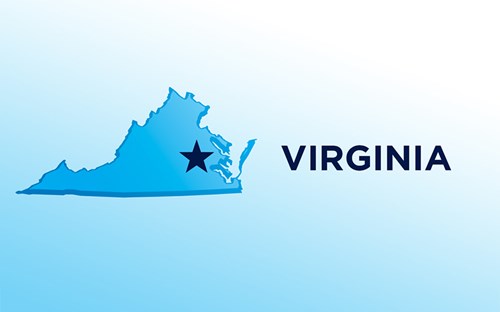The graphic sexual images shown to school children are not only immoral but illegal, says that mom, Stacy Langton. Now her local school district has reluctantly agreed – even if in stealth – that the book she held before them many months ago, “Queer: A Graphic History,” is not appropriate for its students.
Board members neglected to tell Langton they had removed the book from the district’s libraries. It was only through accidental communication roughly a year-and-half after Langton exposed the book in a school board meeting that she found it had been quickly removed. (See earlier story)
Seeking clarification this week
 Two weeks before the presidential election, Langton returned to a meeting of the Fairfax County school board hoping to speak and promote Donald Trump and policies that would not allow sexually explicit content in school libraries.
Two weeks before the presidential election, Langton returned to a meeting of the Fairfax County school board hoping to speak and promote Donald Trump and policies that would not allow sexually explicit content in school libraries.
But board members tried to block Langton from speaking, saying the book she referenced in the pre-meeting video she submitted – “Queer: A Graphic History” – was not available in school libraries. Through the course of exchanged emails, Langton learned that the book she challenged before the board in May of 2023 had been removed just weeks after that visit.
The reason given for the book’s removal was not because it was inappropriate for children and minors, Langton said on American Family Radio Monday, but because the book contained “outdated terminology.”
It was a vague response she hopes will be clarified in a meeting on Wednesday with Michelle Reid, the superintendent of Fairfax County Public Schools.
For now, Langton believes she’s been given a bogus explanation and that the truth of the book’s removal is because board members themselves were shocked when presented with the graphic images contained in material they make available for students. “Queer: A Graphic History” is just one example, she told show host Jenna Ellis.
Langton set her sights on this particular book because it had “graphic” in the title when she stood before a display of roughly 20 books encouraging students at her son’s high school to consider reading LGBTQ-themed material. The display included LGBTQ rainbow imagery and other enticing scenes.
Even Democrats are shocked
Langton was so offended by what she saw that she copied the images in the book and showed them to board members.
“I picked it up and started flipping through it. And there's six or eight illustrations in that book that are completely X-rated. There are depictions of sex acts. That one just happened to be the worst, which I printed out, to show to the school board,” she said.

Langton has posted photos of the images on her social media. She details her three-year efforts to remove sexually explicit material from schools at her website, MamaGrizzly.org.
Though board members have not recognized Langton’s May 2023 appearance as the source of the book’s removal, Langton says their expressions belied their thoughts.
“I was standing maybe 30 feet away at the podium, and they were on the dais. Their eyes [grew wide] like they were shocked,” she shared. “I don’t think they knew what was in this book. They’re all Democrats, all really strong liberals, but this was a bridge too far even for them.”
School system officials told Langton the book was removed from most of their schools in June 2023.
When you get right down to it, parents are parents
“Queer: A Graphic History” was not the first book Langton presented at a school board meeting. She did the same thing two years earlier to a different group with “Gender Queer.”
“On this fight for the last three years, when I go places, in the public and talk with people about what it really is, if I say to a Democrat, like, ‘Hey, have you actually seen the images?’ Oftentimes they have not,” Langton said.
 Regardless of political party, reactions are the same, she says.
Regardless of political party, reactions are the same, she says.
“When Democrats see that, they always have a visceral reaction to it, right? Because parents are parents everywhere they go, no matter what their sort of political affiliation is, and they have a reaction to a pornographic image, just like anybody would.”
The images are a product of a sexual revolution that has been going on for 200 years, Dr. Carrie Gress, a fellow with the Ethics and Public Policy Center, said on Washington Watch Friday. She told show host Jody Hice the root cause of the “trans craziness” being seen today is feminism.
“We’ve thought of feminism as something that's been very good for women. Unfortunately, feminism has really promoted this idea of women being independent from husbands and from children and really making work the goal and the ideal for women's lives,” Gress said.
“We’ve been groomed for the last 50 years, being told that we [women] are going to be happiest if we act like men – and not good men. This has really pushed women to think of themselves in these male contexts.”
Why are laws not upheld?
The question Langton would like answered is why explicit material can’t be removed in the same way “harmful-to-minors” laws seek to protect those younger than 18 from pornography and obscenity.
The laws are based on the concept of “variable obscenity,” writes David L. Hudson Jr., for the Free Speech Center at Middle Tennessee State University.
Certain material can be considered obscene when viewed by children and young people though not when viewed by adults. Obscene material is not protected as free speech under the First Amendment and can be regulated by the government.
This was established in 1973 by the Supreme Court in Miller v. California. Clearly, Langton is frustrated.
“Why is nobody addressing the obvious?" she wondered aloud. "It is against the law to put pornography in the presence of minors. It's against the law at the federal level. It's on the DOJ's website, and there's even a section of the law, the statute, as it is written, that says you cannot show cartoon line drawings of sex to children.
“So how does that magically become legal on a school campus inside the school library?”







